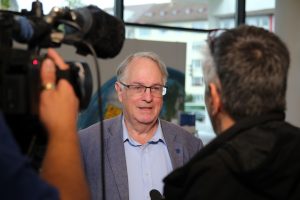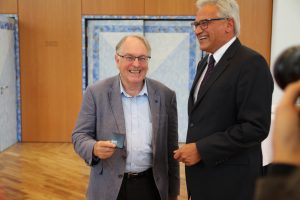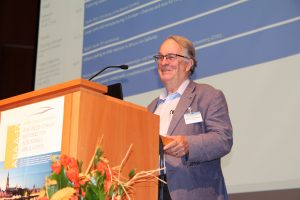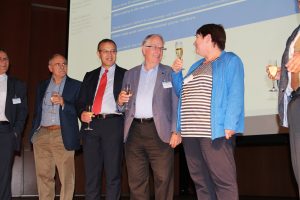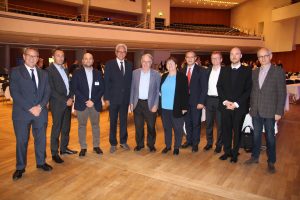The Ulm Battery Conference ABAA12 (Advanced Lithium Batteries for Automobile Applications) was drawing to a close as the message from Stockholm spread in the audience. A conference participant had just been awarded the Nobel Prize on the same morning.
Spontaneous jubilation, standing ovations and applause for the newly awarded winner: M. Stanley Whittingham – who himself had been informed of his award just a few minutes earlier by a telefphone call – sat calmly in the audience of the ABAA12 conference, when the news went around the world. He was honored with this year’s Nobel Prize for Chemistry at 11:45 am with John B. Goodenough and Akira Yoshino for inventing the lithium-ion battery.
Stanley Whittingham was considered one of the earliest lithium battery researchers worldwide. These lithium-ion batteries are today in almost all portable electrical appliances, e-cars and stationary storages. His personal research contribution was a whole series of material innovations: Not only were the lithium batteries much lighter than their predecessors, they could also be re-charged and discharged many times.
Whittingham developed the first functional lithium battery in the early 1970s. Goodenough was responsible for the development of much more powerful batteries. Yoshino in 1985 produced the first commercially available lithium-ion battery.
The ABAA12 Conference is an international conference with changing venues on every continent. The conference was hosted by Margret Wohlfahrt-Mehrens (ZSW), Prof. Stefano Passerini (HIU) and Dr. med. Khalil Amine (IALB / Argonne National Laboratory, USA).
The ABAA12 conference is unique compared to other congress formats. The ABAA12 provides a substantial connection between science, industry and politics. Around 380 participants from 30 nations – including renowned scientists, policymakers and representatives of the automotive industry – debated over four days on current trends of lithium-ion batteries.
Conference participant becomes Nobel Prize Winner
